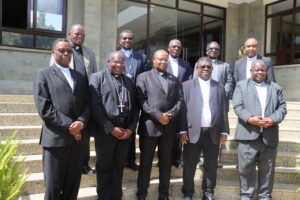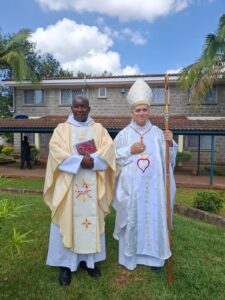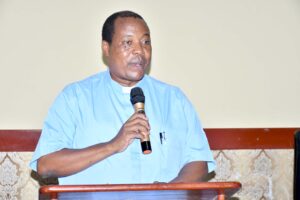SECAM: Upcoming CEPACS’ Golden Jubilee, An Opportunity for Stock-taking and Enhancing Synodality in Africa
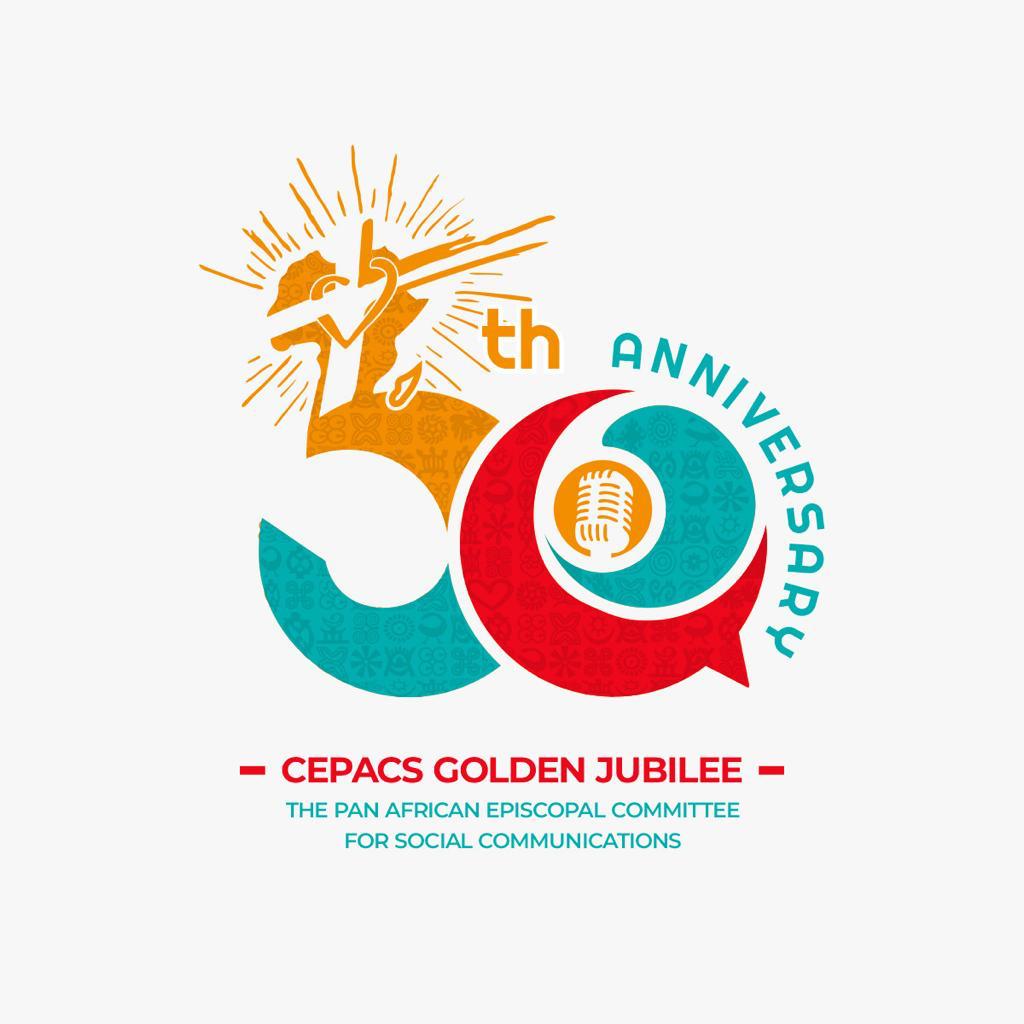
Sr. Jecinter Antoinette Okoth, FSSA
The upcoming Golden Jubilee celebration for the Pan African Episcopal Committee for Social Communications (CEPACS) slated for November 18-21, in Lagos, Nigeria, aims to strengthen synodality in Africa as participants focus on assessing and reviewing the committee’s task in the continent.
In a video clip shared with AMECEA Online Thursday, November 9, the President of CEPACS Bishop Emmanuel Adetoyese Badejo notes that since Synod on Synodality calls the Church to a new way of existence that carries everybody along and leaves nobody behind, “all segments of the Church be allowed to have a voice to have an opinion, and to feel a sense of belonging to a Church that cares about them.”
The CEPACS assembly therefore the Bishop said, is a time to strengthen, “Collaboration with all segments of people who have the same aim and objectives as the Church to unify humanity and cause the advancement of human beings, especially media professionals.” That means involving the children, the young people, the women the men, those considered not educated in the Western ways, and even the traditional region worshipers together with people of other religions and Churches.
He expounded further that the Golden Jubilee being celebrated when the Pope is emphasizing the aspect of walking together, “gives the opportunity for stock-taking what CEPACS has done so far, what it has achieved, where it is going, what can be changed, and what can be made better.”
The committee of CEPACS was established in Ibadan, Nigeria by the Bishops of Africa in 1973, to help and represent the continent on matters that concern the media and engagement with the communication world. In its statutes, “The Church in Africa is convinced that if Evangelization is at the center of the mission of the Church, then Communication is the heart of Evangelization. (Thus) The Church is aware that in addition to personal contact evangelism and other traditional means of carrying the message, it must also employ the modern means of social communication made available to it by modern technology, and at the same time, the Church must remain alive and dynamic to respond effectively to its divine mission of evangelization and communication.”
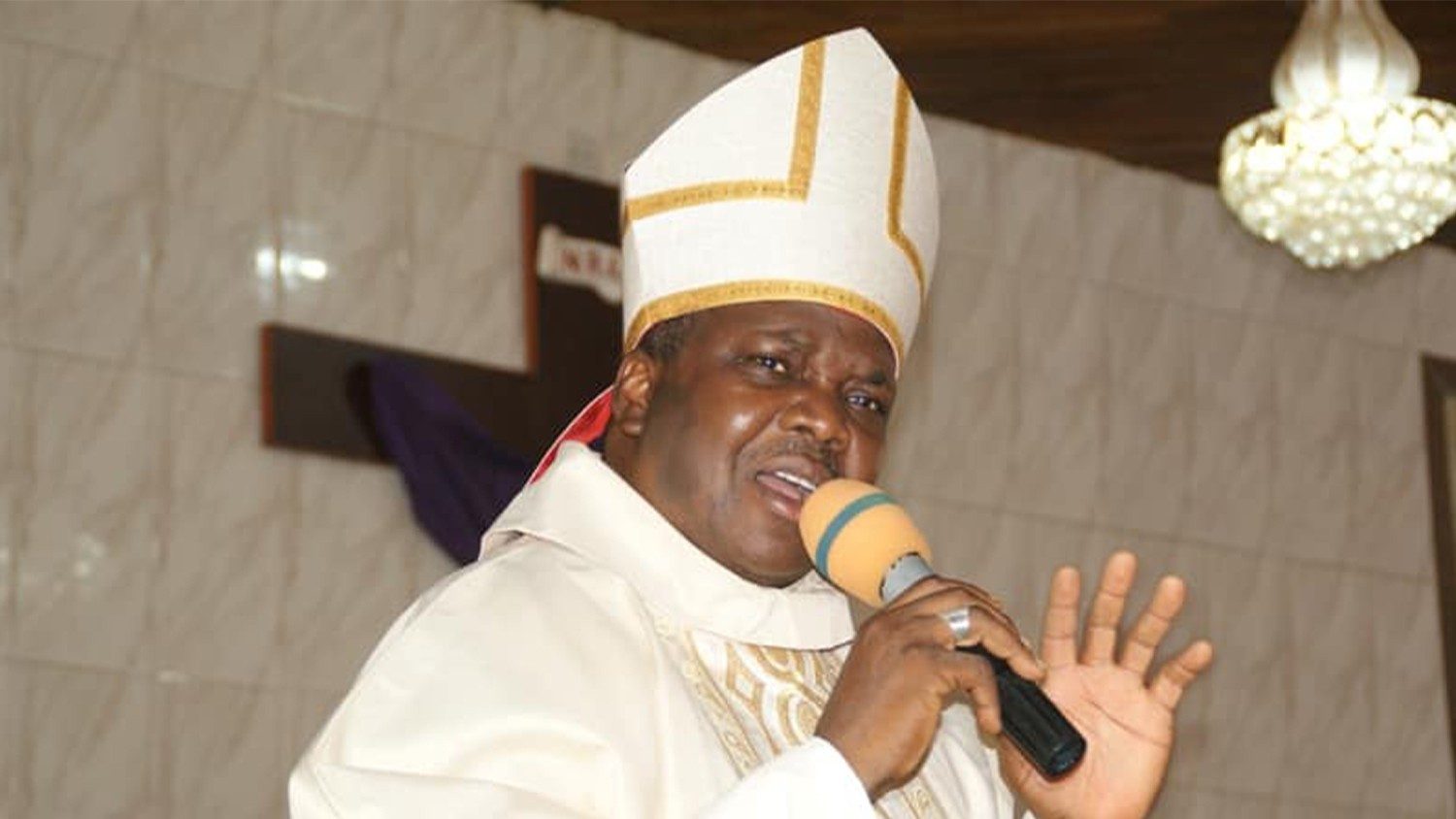
According to Bishop Badejo of Nigeria’s Oyo Diocese, CEPACS was set up in 1973 CEPACS was established in 1973 as an initiative of the Symposium of Episcopal Conferences of Africa and Madagascar (SECAM) as a response to the Vatican’s document Communio et Progressio (the pastoral instruction on the means of social communication) that was released at the direction of the Second Vatican Council. The document was meant to deepen understanding of the teaching and spirit of the Council and guide Christians in their attitudes to the media after the publication of Intermerifica; a document addressing the concerns and problems of social communication.
Speaking about the significance of the historic Golden Jubilee celebration that will be attended by the bishops in charge of the communication offices of the eight regions of SECAM, communications experts, and professionals, CEPACS standing committee members, the president of SECAM, and the Prefect of the Dicastery for Social Communications in the Vatican among others, the Prelate who is also a member of the Vatican Dicastery for Communication since December 2021, pointed out, “We hope to have a better understanding of how the media can play an important role in making a better world, in the reconciliation of people, in making people feel part of the human family and part of God’s family.”
He continued, “We hope to have a better link with the dicastery for communication in Rome through the establishment of a database that is active for Catholic media professionals so they can relate to one another across countries in Africa and also relate to the Dicastery in Rome and collaborate with the work of the Dicastery, the work of Church at that level.” At the same time, “We hope to establish how important it is for people who work in the communications media to be accompanied spiritually because everybody has spiritual needs but also to be helped professionally wherever possible.”
